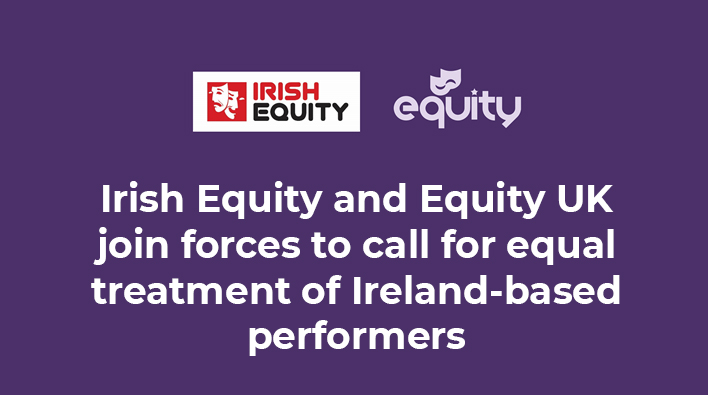Irish Equity has expressed its support for motions passed at the SIPTU Biennial Delegate Conference in Sligo which call for legislation to secure collective bargaining rights for workers in Ireland in line with those available in the rest of the EU.
Irish Equity President, Gerry O’Brien, said: “Ireland remains an outlier among western European countries when it comes to collective bargaining coverage. Nowhere is the impact of this more evident than in the heavily state subsidised audio visual industry in Ireland. This has undermined attempts to successfully engage with employers in this sector due to the dominant position that producers and broadcasters find themselves in relation to performers in the Republic.
“This has resulted in many high budget co-productions shot in Ireland availing of taxpayer support through various Government and local grants, engaging indigenous performers on inferior terms and conditions to those of visiting performers.
“This has created an unacceptable inequity in how we value our talent compared to visiting performers, whose payment is also deemed part of the eligible spend in Ireland of a production. This means that taxpayers in Ireland are supporting productions where international performers are on superior terms and conditions to their colleagues based in Ireland. A collectively bargained agreement cannot allow for such inequity to exist.
“Performers are protected by the Copyright and Related Act Ireland 2000 which provides them with certain rights, including a right to equitable remuneration for the exploitation of their work. The value of this participation can only be achieved through good faith negotiations. This is what allows performers in film and television productions to receive what are called residual payments for the ongoing use of their recorded work.
“The European Copyright Directive further protects the right of performers to residual payments and requires that all contracts allow them to participate in the financial success of a production in an appropriate, equitable and proportionate manner.”
He added: “Irish Equity is working with Equity UK (NI) in order to ensure performers, North and South, are valued equally. Both unions, working together, are committed to equality for all performers on the island of Ireland.”











